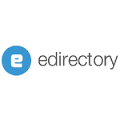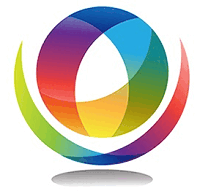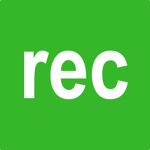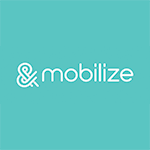Description

eDirectory

WebCollect
Comprehensive Overview: eDirectory vs WebCollect
eDirectory and WebCollect are two distinct software solutions that cater to different organizational needs, primarily focused on directory management and community management, respectively. Here's a comprehensive overview of each:
eDirectory
a) Primary Functions and Target Markets
- Primary Functions: eDirectory is a versatile platform designed to help businesses, associations, and community organizations establish and manage online directories. Its core functions include:
- Directory listing management
- Customizable search and filter features
- Membership and subscription management
- Advertising and monetization options
- Content management systems (CMS) integration
- SEO tools and analytics
- Target Markets: eDirectory primarily targets businesses, community organizations, franchise systems, and associations looking to create powerful online directory services. It is particularly popular among industries like real estate, healthcare, local businesses, and journalistic organizations.
b) Market Share and User Base
- Market Share: eDirectory is a well-recognized name in the directory software market, serving globally, although its exact market share is not specified due to the diverse nature of directory platforms and their varying use cases.
- User Base: It boasts a wide user base that includes small to medium-sized businesses, large enterprises, and niche markets requiring custom directory solutions.
c) Key Differentiating Factors
- Highly customizable and scalable platform
- Strong emphasis on monetization features
- Robust integrations and plugins for expanded functionality
- Multi-language support for global reach
WebCollect
a) Primary Functions and Target Markets
- Primary Functions: WebCollect specializes primarily in membership and event management for clubs and societies. Its core functions include:
- Membership management and renewals
- Event creation and ticketing
- Online payment processing
- Communication tools for members
- Reporting and analytics
- Target Markets: WebCollect is aimed at community groups, sports clubs, hobbyist organizations, and societies that need effective tools to manage their memberships and events efficiently.
b) Market Share and User Base
- Market Share: While not as widely recognized on a global scale as some enterprise management solutions, WebCollect has carved out a niche in the UK and surrounding regions, particularly among grassroots organizations.
- User Base: It serves a dedicated but specialized audience focused on non-profit clubs, recreational entities, and local community groups.
c) Key Differentiating Factors
- Focus on ease of use and simplicity for non-technical users
- Strong community and support network
- Adequate tools for small to medium-sized organizations
- Budget-friendly pricing structure tailored for non-profits and clubs
Comparison Summary
While both eDirectory and WebCollect offer management solutions, they serve different functional areas and target markets. eDirectory excels in building robust online directories with extensive monetization and customization options, catering to businesses and industries needing comprehensive directory services. On the other hand, WebCollect is tailored toward membership and event management for smaller organizations and clubs, offering straightforward and cost-effective solutions to manage community interactions and events. Their differing functionalities and markets mean they generally do not compete directly but instead complement niches within the broader spectrum of organizational management.
Contact Info

Year founded :
Not Available
Not Available
Not Available
Not Available
Not Available

Year founded :
Not Available
Not Available
Not Available
United Kingdom
http://www.linkedin.com/company/webcollect
Feature Similarity Breakdown: eDirectory, WebCollect
When comparing eDirectory and WebCollect, both of which are solutions commonly used for managing directories and membership information, it's important to understand their core features, interface differences, and unique offerings. Although actual specifics may vary depending on the version or customization, we can explore a general comparison:
a) Core Features in Common
-
Membership Management: Both eDirectory and WebCollect typically offer comprehensive tools to manage member information, including profiles, status, and history.
-
Payment Processing: Both solutions provide mechanisms for handling payments. This includes collecting membership fees, donations, or any other financial transactions linked to the user base.
-
Event Management: The ability to organize, promote, and manage events is generally included in both systems. This can involve event creation, registration handling, and attendee tracking.
-
Communication Tools: Both may offer integrated communication features such as email newsletters, alerts, or direct messaging to keep in touch with members or directory users.
-
Reporting and Analytics: Users of both platforms can typically generate reports and analytics to better understand user behaviors, financials, and engagement metrics.
b) User Interface Comparison
-
eDirectory: Known for its robust and customizable nature, eDirectory often provides a feature-rich interface that can be tailored heavily based on the specific needs of the organization. This can result in a steep learning curve but offers flexibility.
-
WebCollect: Generally aims for ease of use with a more straightforward user interface, focusing on providing essential functions without unnecessary complexity. The user experience tends to be intuitive and accessible, making it suitable for organizations with limited technical resources.
c) Unique Features
-
eDirectory Unique Features:
- Extensive Customization: eDirectory is often praised for its highly customizable nature, allowing organizations to tailor every aspect of the directory to suit specific requirements.
- SEO Tools: Integrated SEO functionalities help organizations improve the visibility of their directories online.
- Monetization Options: Offers varied ways to monetize the directory, such as featured listings or advertising options.
-
WebCollect Unique Features:
- Simplicity and Quick Setup: WebCollect generally emphasizes an easy setup process which can be completed quickly without technical expertise.
- Club and Group Focus: It often targets clubs, societies, and small groups, focusing on community-building features such as forums or social features.
- Donation Management: Particularly strong at managing donations, which can be a critical feature for non-profits and community groups.
In summary, eDirectory is well-suited for organizations needing a highly customizable and feature-rich directory platform, whereas WebCollect is ideal for smaller and resource-limited organizations seeking simplicity and ease of use, with some unique community-oriented features.
Features

Not Available

Not Available
Best Fit Use Cases: eDirectory, WebCollect
eDirectory and WebCollect are different software platforms catering to distinct needs, so it's important to identify their optimal use cases based on business types, projects, industry verticals, and company sizes.
eDirectory
eDirectory is a robust platform designed primarily for creating and managing online directories. It's suited for:
a) Types of Businesses or Projects:
- Business Directories: Ideal for media companies, publishers, or entrepreneurs looking to create a comprehensive online directory for various industries, such as real estate, healthcare, or legal services.
- Niche Directories: Perfect for specialty markets needing a directory platform to connect specialized communities, like wedding planners, local artisans, or transportation services.
- Community Portals: Municipalities or local chambers of commerce aiming to foster local economies can use eDirectory to promote businesses and community events.
- Franchise Networks: Franchises needing a centralized directory for listing all their locations or services can benefit from eDirectory’s capabilities.
d) Industry Verticals and Company Sizes:
- SMBs to Large Enterprises: While suitable for small to medium-sized businesses (SMBs) that want to consolidate business listings, it also scales up for larger enterprises with extensive directory needs.
- Specific Industries: Particularly effective in industries that rely on listed data, such as healthcare, education, hospitality, and B2B marketplaces.
WebCollect
WebCollect is a membership management software tailored for clubs, societies, and community groups. It provides tools for managing memberships, payments, and events.
b) Scenarios for Preferred Use:
- Clubs and Societies: Ideal for sports clubs, hobby groups, or alumni associations that need a streamlined way to handle member subscriptions, renewals, and communication.
- Community Organizations: Excellent for local community centers or non-profits that organize events and require efficient management of member information and event registration.
- Educational Institutions: PTAs or student unions can use WebCollect to manage member interactions and facilitate event handling.
d) Industry Verticals and Company Sizes:
- Non-profits and Community Groups: Primarily targets small to medium-sized organizations with a focus on community engagement rather than corporate scale.
- Education and Hobbies: Its applicability extends to educational groups and hobbyists, where the focus is on event management and membership communications rather than large-scale business listings.
Conclusion
eDirectory and WebCollect serve distinctly different markets. eDirectory is best for businesses looking to build comprehensive listings or directories, catering to a wide range of industries and varying company sizes. In contrast, WebCollect is tailored to smaller community-driven organizations like clubs and societies, emphasizing membership management and event handling. Both platforms bring specialized capabilities to their respective niches, supporting a range of operational scales and industry focuses.
Pricing

Pricing Not Available

Pricing Not Available
Metrics History
Metrics History
Comparing undefined across companies
Conclusion & Final Verdict: eDirectory vs WebCollect
Conclusion and Final Verdict: eDirectory vs. WebCollect
When deciding between eDirectory and WebCollect, it's important to evaluate each product based on its features, costs, ease of use, customer support, scalability, and the specific needs of your organization.
a) Which Product Offers the Best Overall Value?
Overall Value Winner: eDirectory
eDirectory generally offers better overall value for organizations that need a comprehensive and customizable platform to manage listings, directories, and community features. Its rich set of features tends to cater more effectively to businesses looking to monetize directories and listings. However, the best value depends greatly on the specific needs of the organization, so it's essential to weigh the core features that align with your business requirements.
b) Pros and Cons of Each Product
eDirectory:
Pros:
- Comprehensive Feature Set: Offers a wide array of features for directory management, including multi-level listings, advanced search options, and member management.
- Customization: Highly customizable to fit various business models and needs.
- Monetization Features: Provides tools for generating revenue through subscriptions, ads, and listings.
- Scalability: Good for businesses planning to grow and expand their directories over time.
Cons:
- Complexity: May have a steeper learning curve for new users due to the extensive range of features.
- Cost: Potentially higher upfront cost depending on the customization and features chosen.
- Overkill for Smaller Projects: Smaller businesses or simpler projects may not require the full feature set offered by eDirectory.
WebCollect:
Pros:
- Ease of Use: User-friendly interface, ideal for communities and organizations looking to create online environments with minimal technical expertise.
- Community and Membership Management: Excellent tools for membership management, events organization, and committee management.
- Cost-Effective: More budget-friendly options, especially suitable for smaller organizations or clubs.
- Support and Training: Offers strong customer support and resources to guide users through the setup process.
Cons:
- Limited Scalability: Might struggle to meet the demands of larger organizations seeking extensive directory features.
- Feature Set: Less comprehensive for businesses focused primarily on directory services rather than community management.
- Customization: Less customizable compared to eDirectory which may limit specific business model applications.
c) Recommendations for Users Deciding Between eDirectory and WebCollect
-
Assess Your Needs: Clearly define what you need the software to do. If your primary focus is on robust directory services with monetization capabilities, eDirectory is likely the better choice. For community-focused platforms where membership management and events are crucial, WebCollect might be the better fit.
-
Budget Considerations: Consider initial costs and long-term value. eDirectory may have higher upfront costs but could offer better ROI for larger-scale projects, whereas WebCollect offers cost-effective solutions for smaller groups.
-
Scale and Growth: Think about your future needs. If you anticipate significant growth or the need to scale your directory offerings, eDirectory's scalability can be a significant advantage.
-
User Experience: Evaluate the ease of use and training resources. WebCollect might be better for those who want a gentler learning curve or minimal technical intervention.
By considering these factors, you can make a more informed decision that aligns with your organizational goals and resources.
Add to compare
Add similar companies




